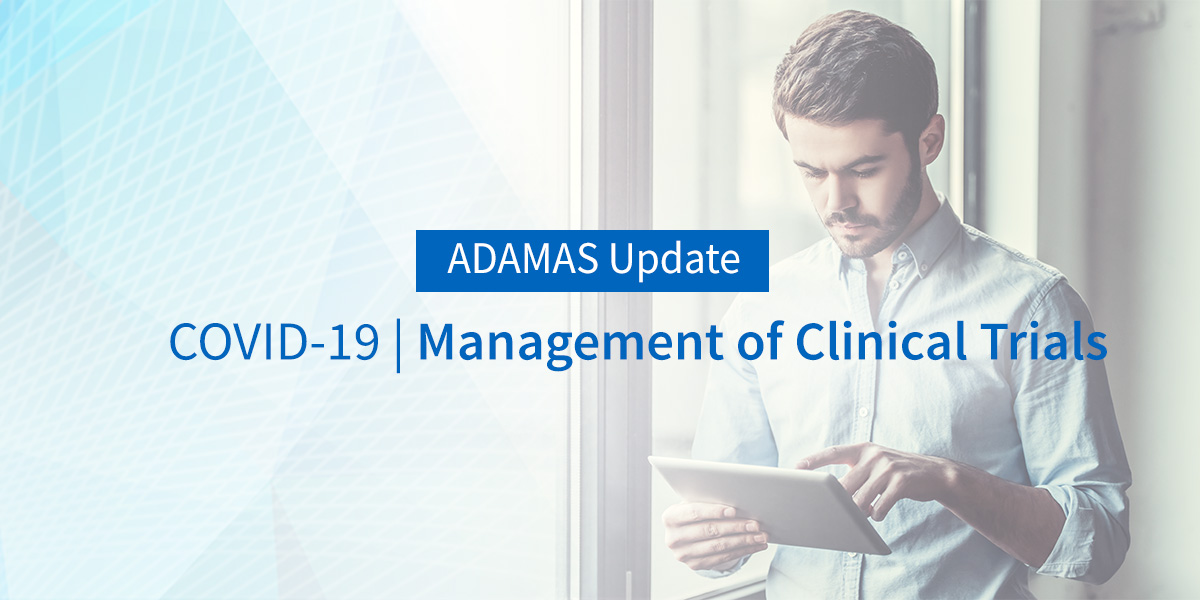Introduction
The COVID-19 pandemic has imposed unprecedented challenges on Sponsors, Investigator Sites and Clinical Trial participants. The potential risks of this global COVID-19 outbreak include:
- Rise in Good Clinical Practice (GCP) non-compliance
- Increase in the number of protocol deviations
- Insufficient evidence of Sponsor and Investigator oversight
- Interruptions to the investigational product supply chain
- Insufficient documentation of the site-specific risks
Below is a summary of the considerations provided by the FDA and EMA to maintain GCP compliance during the COVID-19 outbreak.
Considerations for Sponsors and Investigator Sites
Risk Assessment:
b) Perform and document re-assessment as the situation develops.
c) Consider investigator driven risk assessment for escalation in the local pandemic situation.
Operational Measures:
b) Engage with the Institutional Review Board (IRB)/Independent Ethics Committee (IEC) for any anticipated urgent changes to the protocol as a result of COVID-19.
c) Work with the IRB/IEC to define procedures to prioritize reporting of deviations impacting the safety of trial participants.
d) Capture specific information in the Case Report Form (CRF) explaining the reason for the missing data, including their relationship with the COVID-19 pandemic and summarize in the Clinical Study Report.
e) Assess the impact on data management and/or statistical analysis plans in consultation with the applicable National Competent Authority (NCA) review.
f) Seek out alternative procedures (i.e. telephone or video conference) to obtain reconsent of patients in the event that physical reconsent is not possible (residing at an isolated or high-risk patient).
g) Put a temporary halt on the trial at some or all trial sites or extension of the trial duration, as applicable.
h) Suspend or reduce trial participant recruitment.
i) Submit permanent changes of the Principal Investigator (PI) as a result of COVID-19 and if required by the NCA and IRB/IEC as appropriate.
Protocol Deviations and Documentation:
b) Sponsors are expected to manage such deviations as per their standard deviation management process; deviations should be documented in the Clinical Study Report.
c) In the US, the appropriate FDA review division should be consulted regarding protocol modifications for the collection of efficacy endpoints, such as use of virtual assessments or delay in the assessment. Failing to obtain efficacy assessments should be documented.
d) As per EMA guidance, protocol waivers remain unacceptable and patients should not be enrolled without proper eligibility assessment and without written informed consent according to the national laws and regulations.
Alternative Supply Chain Measures:
b) For IMP that require healthcare settings for administration, Sponsors should develop alternative administration processes (for example: home nursing, alternative sites by trained but non-study personnel).
c) Where IMP re-distribution is required, Sponsors should follow a written procedure established in co-operation with the Qualified Person (QP) or the person responsible for the distribution of IMP.
d) Where remote QP certification is employed, it must be described and controlled within the pharmaceutical quality system. Accurate and up-to-date information must be available to support batch certification and release. The QP must also be able to demonstrate they are fulfilling their wider duties.
e) Sponsor is responsible for ensuring that alternative shipping and storage arrangements should not compromise the treatment blinding.
Communication with Authorities:
Travel Limitations:
b) If the COVID-19 pandemic limits the trial participant to perform critical laboratory tests, imaging or other diagnostic tests at the site, such tests can be conducted at the local laboratory or relevant clinical facilities that are authorised/certified to perform such tests routinely.
c) Ensure that these alternative methods are adequately documented, and data protection and data integrity requirements are taken into consideration.
How can ADAMAS Consulting support you?
ADAMAS has developed an alternative to the traditional Investigator Site Audit to enable Sponsors to monitor and maintain compliance in these exceptional times.
The remote Quality Investigator Site Assessment (QISA) is designed to afford the highest possible degree of Sponsor oversight and reassurance during the pandemic and is supported by our encrypted file sharing tool to enable secure exchange and access to documents.
If you would like to learn more please download our guide ‘Quality Investigator Site Assessment (QISA)’
Download
To find out more about what ADAMAS can do to support your audit program, please feel free to call us on +44 (0)1344 751 210 in Europe, +1-919-341-3361 in the US; or email us at info@adamasconsulting.com.


